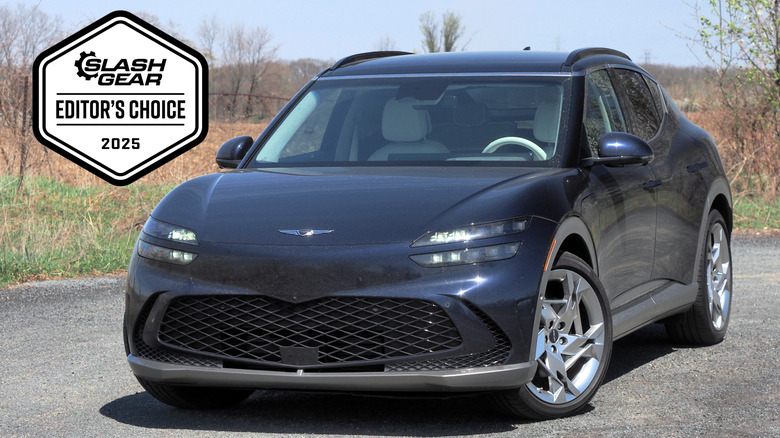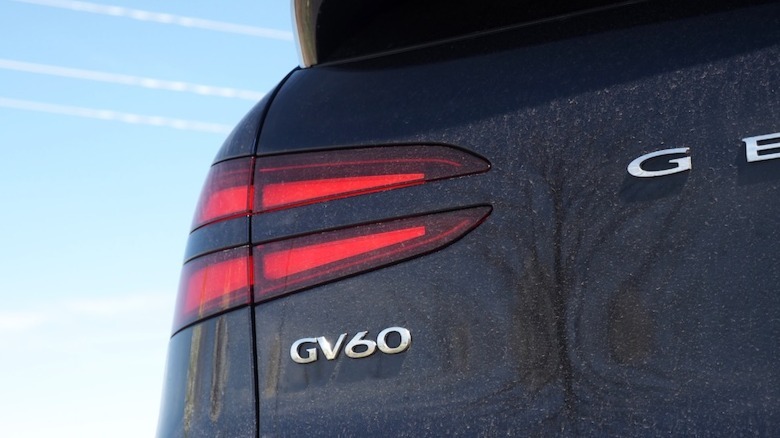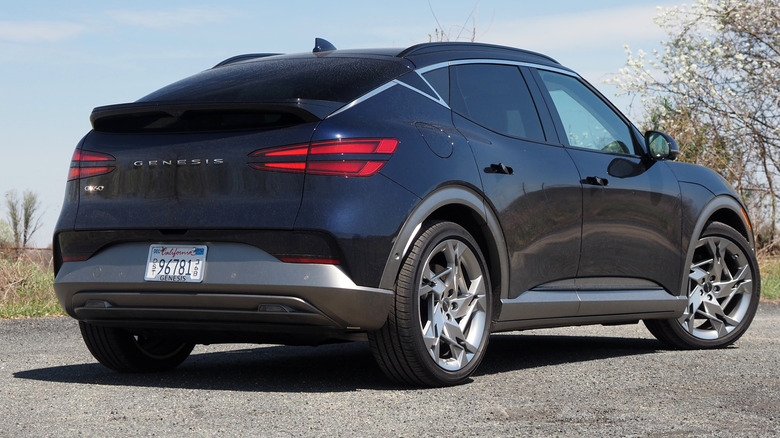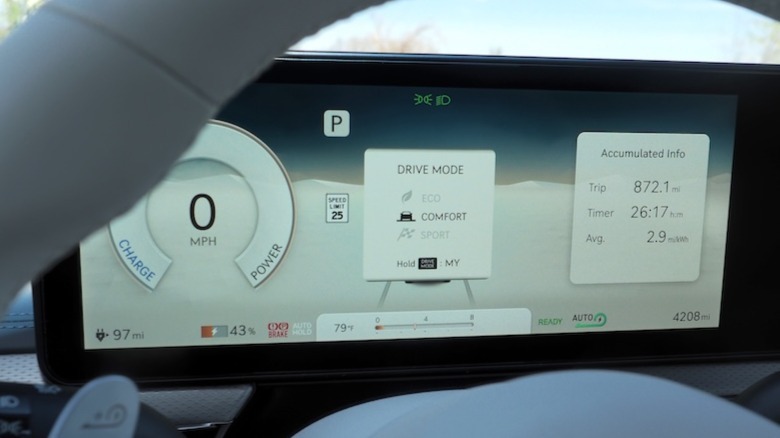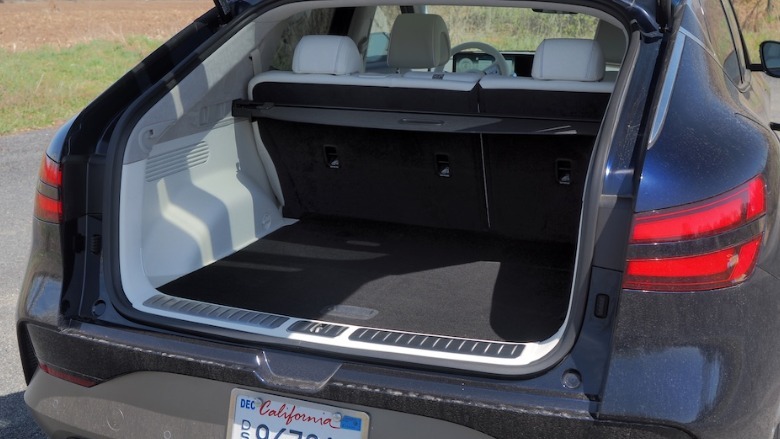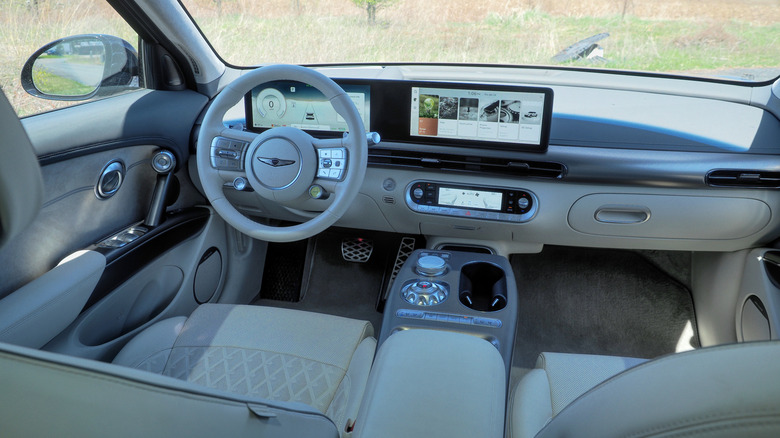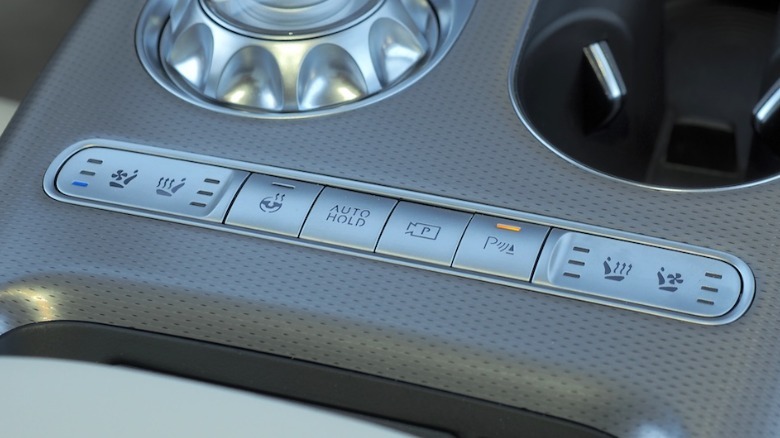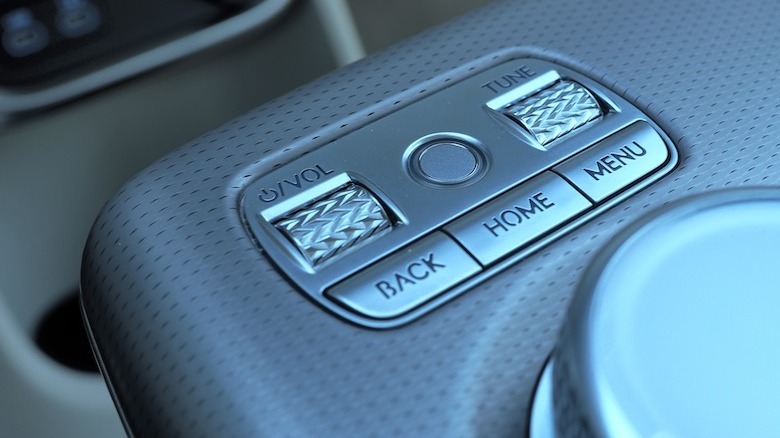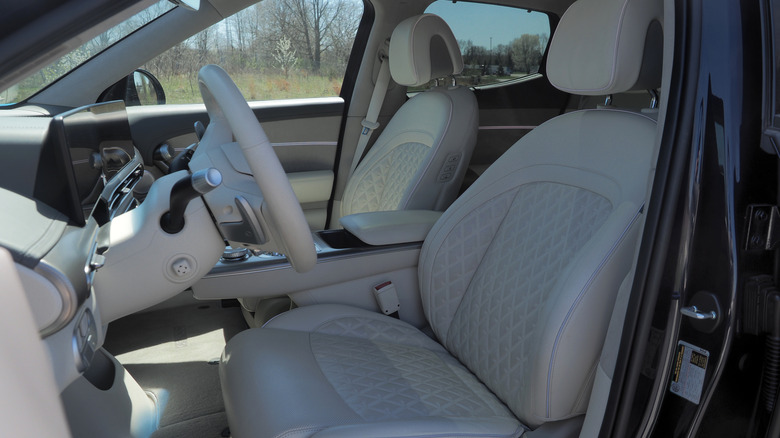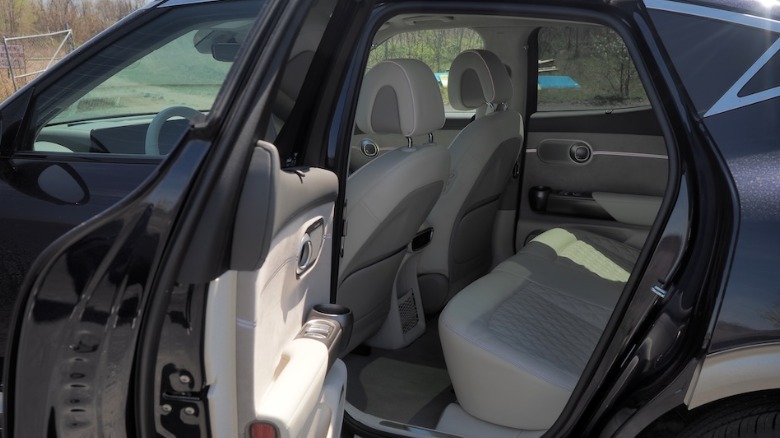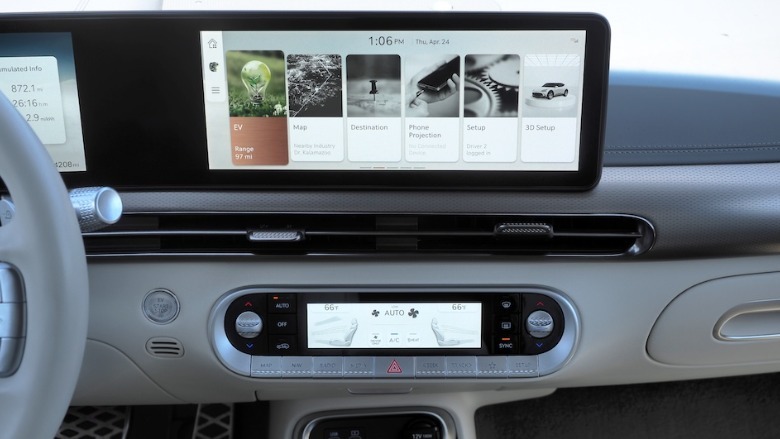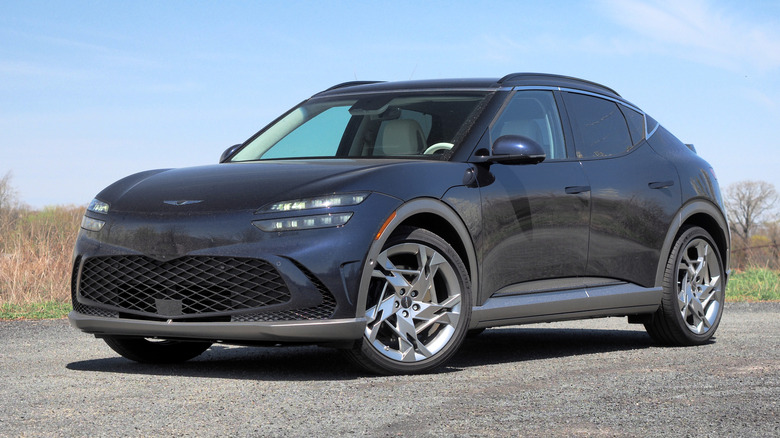2025 Genesis GV60 Review: Luxury Electric Crossover Feels The Heat From New Competition
- Distinctive style and interesting cabin
- Plenty of standard equipment
- Solid performance
- Still one of the fastest-charging EVs in its class
- Range looks a little slim compared to rivals
- Some of the detailing feels gimmicky
Maybe it's the liberty of launching a new brand, unencumbered by awkward legacy, or perhaps Genesis just gauged the mood on electric vehicles better, but cars like the 2025 GV60 feel compelling in ways that rivals often can't match. Unique in the automaker's line-up for being the only model not to have a gas or hybrid version, the GV60 may be one of the smallest and most affordable in Genesis' portfolio, but it punches above its scale in charm.
You can partially credit Hyundai group's E-GMP architecture for electric vehicles for that — the same as which underpins the Hyundai Ioniq 6 and Kia EV6, among other cars — given its advantages in driving performance and charging efficiency. Even after several years, Genesis still has an edge over many rivals for the speed at which it'll charge and the efficiency of its e-motors. Still, the GV60's playfully memorable styling and distinctive cabin can't be ignored, either, even as competition heats up in the compact electric crossover segment.
All but the base GV60 get AWD
The 2025 GV60 Standard ($52,350 plus $1,350 destination) starts out in single motor form, with a 168 kW / 225 horsepower electric motor supplying its 258 lb-ft of torque to the rear wheels. While the 77.4 kWh battery is standard across the board, unsurprisingly the RWD version is the range hero: it's rated at 294 miles on a full charge.
All-wheel drive is available on the Standard AWD (from $55,850 plus destination) and the only option for the Advanced AWD (from $60,900 plus destination). With two motors, there's a total of 234 kW / 314 horsepower and 446 lb-ft of torque; range dips to 264 miles and 248 miles, respectively.
Finally, there's the 2025 GV60 Performance AWD (from $69,900 plus destination). With a more potent front motor, it packs 320 kW / 429 horsepower and 516 lb-ft of torque; stab the green Boost button on the steering wheel, and those numbers jump to 360 kW / 483 hp for 10 seconds.
Press the green button
Boost mode is, Genesis says, enough to trim the 0-60 mph time to a mere 4 seconds. That's not just fast for a little crossover, it's fast, period: enough to shame "proper" sports cars, and more than sufficient to keep a smile on your face. It's charmingly easy to get the GV60 to break traction, thanks to its low rolling resistance tires.
Even without the Boost button thumbed, though, the Performance AWD model is nimble and spritely, as content on the highway zipping around trucks and slower traffic, as it is darting in town.
The steering is highly-assisted, and the suspension — even with the fancy road preview system only on the Performance AWD trim, which scans the asphalt ahead to preempt bumps — firm. That's par for the course with EVs, given the not-inconsiderable curb weight: ranging from around 4,500 to 4,900 pounds, trim depending, the little Genesis is about as heavy as some F-150 V8 trims.
Still one of the best EVs for efficiency
Threading the GV60 through gaps in traffic, though, is a perky joy. Eco mode isn't as aggressively restrained as in some rival EVs, and there are several levels of regenerative braking adjusted by the paddles on the steering wheel. Oddly, while there's a one-pedal mode — which allows you to modulate speed down to a full stop with just the accelerator pedal — not only won't it latch across power cycles of the car, the GV60 won't always let you enable it.
With an average power consumption nearing 3 miles per kWh during my time with the GV60, the 235 mile EPA rating for the Performance AWD trim I was testing was not far from my reach. Had I skipped Sport mode and the Boost button, and driven more sensibly, I've little doubt that Genesis' estimates would've been achievable.
Genesis — and indeed Hyundai Group cars in general — continue to show the rest of the EV world their heels when it comes to DC fast charging speed, and the GV60 is no different. Find a 350 kW charger and you can in theory go from 10-80% in 18 minutes. At home, standard-fit 11 kW Level 2 charger support means 10-100% charge takes about seven hours (assuming your home charger is a 48A model).
A distinctive cabin
Compared to the other interiors in Genesis' range, the cabin of the GV60 is far more whimsical. From the pod-style door controls, to the lime green accents, and of course the pointlessly-performative-yet-perfectly-pleasing rotating transmission shifter (Why is there a glowing red glass orb in the GV60's center console? I mean, why not?) it feels an altogether more playful and youthful interpretation of modern electric luxury.
I do wonder if it'll date more rapidly, and it's certainly plasticky in places. One welcome decision is Genesis' commitment to physical controls: while all trims get a 12.3-inch touchscreen, there are still plenty of dedicated buttons and switches. They control the dual-zone climate control, the standard heated seats (front-only in the Standard and Advanced trims; front and rear in Performance), and the Advanced and Performance's ventilated front seats and heated steering wheel.
All trims get two USB-C ports up front and a wireless phone charger, but while Genesis updated the 2024 GV60 with wireless Apple CarPlay and Android Auto, it'll take a software update to enhance the 2025 model year from wired-only. That was not present on the car sent for review.
A head-up display and 12.3-inch digital cluster screen are standard on all trims, along with Face Connect and fingerprint authentication. The former uses a camera in the B-pillar to unlock the EV by the driver's face; the latter allows them to start the GV60 by fingerprint alone.
V2L means more ways to use the battery
Standard trim gets faux-leather for the seats; Advanced swaps that for real hide, and Performance for nicer Nappa leather. Unsurprisingly, while it's a spacious place to be in the front, the rear is a little more snug, but still definitely adult-scale. Some neat details — like the center console being open to the rear passengers — definitely make life easier back there, as do the two rear USB-C and single 12V port, while Advanced and Performance trims get vehicle-to-load charging.
That includes a place to plug in 120V AC devices in the back, along with — using an adapter plugged into the exterior charging port — the ability to drive appliances outside of the GV60. It works while the car's battery is above 20% and can supply appliances with up to 1.9 kW at 16 amps. Enough, certainly, for a good tailgating party or the essentials while camping, though not to keep your whole home running during an outage like, say, an F-150 Lightning can.
The trunk is a reasonable 24 cu-ft, expanding to 54.7 cu-ft with the 60/40 split rear seats folded down. There's also a diminutive 0.71 cu-ft frunk, about big enough for the portable charger cable.
2025 Genesis GV60 Verdict
Things have changed dramatically in the EV world since the GV60 first launched, of course, and a compact luxury electric crossover is no longer quite such a rarity. The $72k sticker price of this particular top-spec example — buoyed only by the $650 Capri Blue paint and a $30 NFC key card — is not all that far off the roughly $77k a new Porsche Macan Electric will cost you. That gets you the base spec Porsche, mind, slower but with more badge prestige than the Genesis.
A better comparison, then, comes over in Polestar's showroom. The Polestar 3 Long Range Dual Motor has more range though is a little slower, at around $75k including destination; a Polestar 4, which dials back the crossover elements, is from around $64k for the Long Range Dual Motor version, with more power and a swifter 0-60 time than this GV60. Audi's Q4 e-tron is competitively priced, though not as perky.
Changeable tariffs and EV tax incentives on shaky ground are a wildcard that's difficult to predict. Genesis' limited availability — only offering the car in 30 U.S. states — is another headache. Yet nether undermines the biggest takeaway from the 2025 GV60, that even with fresh competition Genesis' smallest EV continues to stand out in all the right ways.
